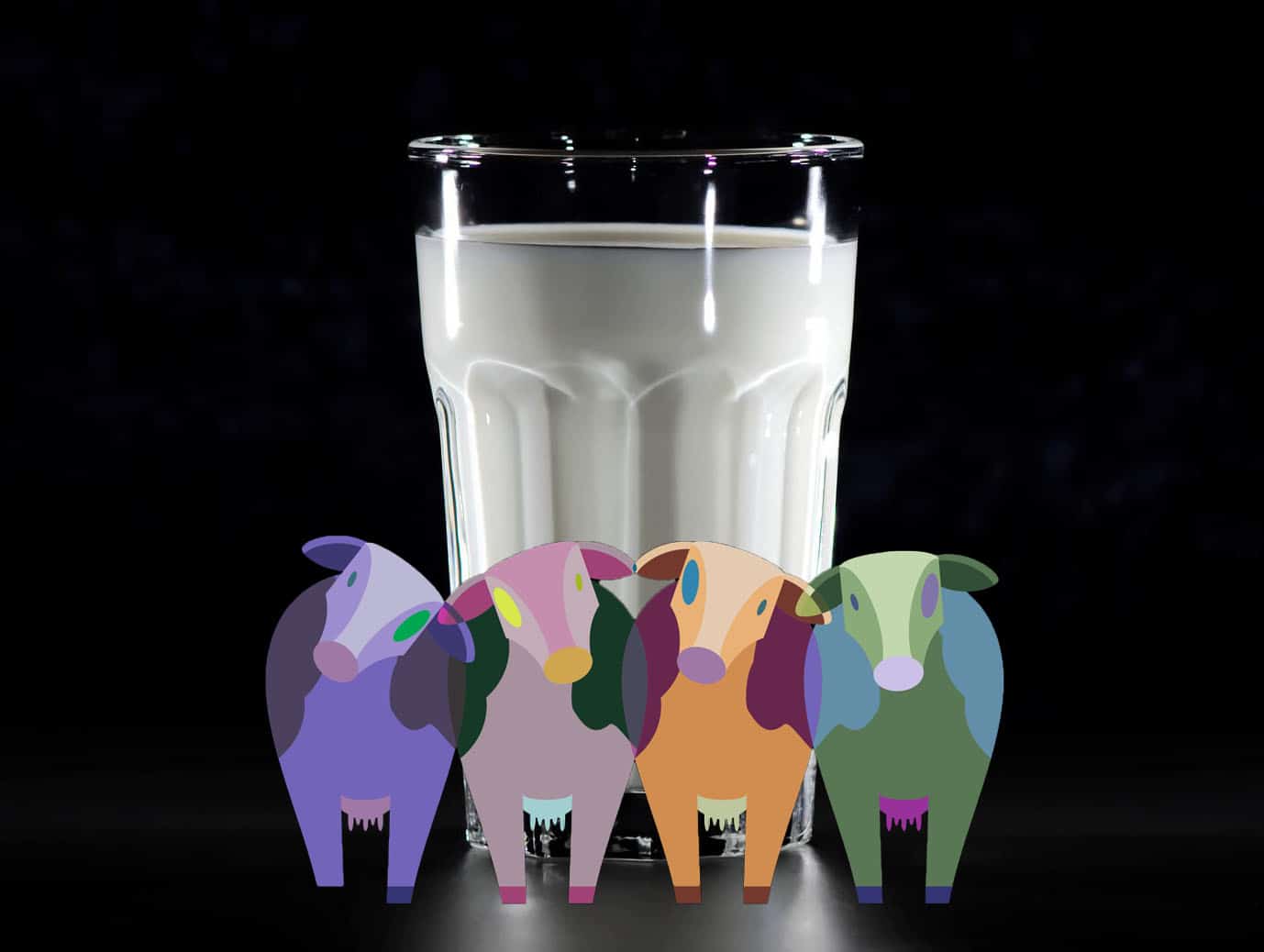
A dog’s view of the world, wrote Rainer Maria Rilke,
is being in it, constantly amazed. I’d add, like E.T.,
not against, as are observant Jews, to what is meaty
when it is served with what comes from a cow that is a milker.
In Jordan they love eating milky mutton, called mansaf,
amazing delicacy that the Torah laws forbid
three times, perhaps the cause—-according to this rhyming monograph!—
for: “Do not boil in its mother’s milk a kosher kid.”
Rilke’s rule explains why we’re told by the true-tried Torah
to offer any food that is not kosher to a dog.
This rule is taught in every Jewish school and synagogue,
and proves the Torah loves all dogs and is not their deplorer.
If you, wise reader, don’t enjoy this poem I hope that
you will not criticize The Jewish Journal if it blogs
its content. Though it may not be “canina hora” glatt,
it should not, I believe, be thrown to our beloved dogs.
In “An Innovator Sold Jordan’s National Dish in a To-Go Cup. Controversy Ensued: Is “mansaf in a cup” a novel way to enjoy the country’s most treasured delicacy, or an affront to its most hallowed traditions?” NYT, June 26/22, Ben Hubbard and Asmaa al-Omar write:
The idea struck the restaurateur like a bolt of lightning after he spilled food on his suit while eating in his car. What if he were to take Jordan’s national dish — a milky mountain of mutton and rice called mansaf, which is traditionally eaten by hand from a large communal platter — and sell it in a paper cup to diners on the go? ….
The mansaf-in-a-cup experiment took off in Amman, along a street crowded with cars blaring pop music and merchandise displayed on the sidewalks.
“What is happening is not just a matter of food, but a way of mocking the people’s heritage,” Mr. al-Majali added. “And when you mock the heritage of a people in this way, it is a prelude to trivializing what is most important and diluting or dissolving identity.”
The mansaf dust-up has roiled the kingdom for the last two years, pitting traditionalists against innovators, those who eat with their hands against those who eat in their cars, and raising the question of how much a culinary tradition can change before it forsakes its roots…..
To make the mansaf, the meat was boiled on the bone in huge metal cauldrons. The cooks dissolved large white balls of a dehydrated sheep’s yogurt, known as jameed, in giant pots to make a salty, milky soup.
When the meat was partially cooked, the cooks drained the water it was boiled in and replaced it with the milky mixture. The meat boiled in the milk until it was tender, making the signature mansaf combination.
“Canina hora” is a wordplay for the Yiddish expression “kineina hora”, which means “No evil eye,” and signifies the desire to ward off evil intentions towards us by satanic forces.
Gershon Hepner is a poet who has written over 25,000 poems on subjects ranging from music to literature, politics to Torah. He grew up in England and moved to Los Angeles in 1976. Using his varied interests and experiences, he has authored dozens of papers in medical and academic journals, and authored “Legal Friction: Law, Narrative, and Identity Politics in Biblical Israel.” He can be reached at gershonhepner@gmail.com.





















 More news and opinions than at a Shabbat dinner, right in your inbox.
More news and opinions than at a Shabbat dinner, right in your inbox.